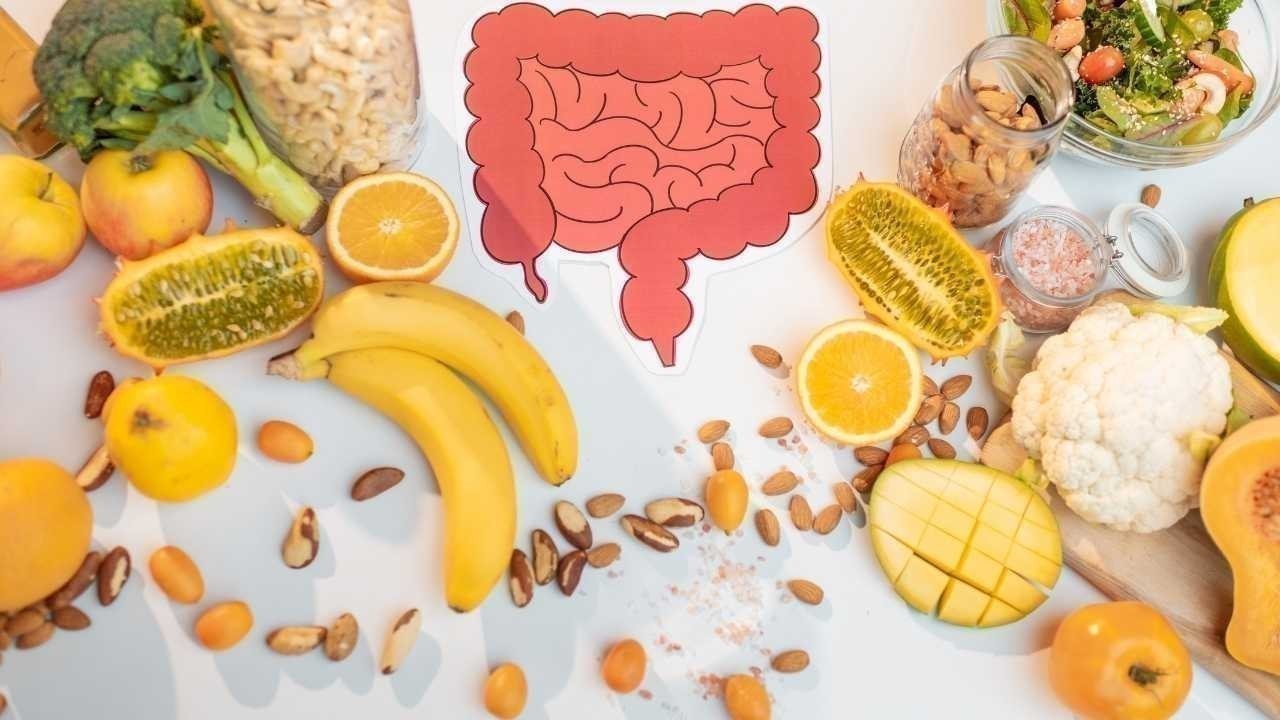
Post by : Luxmi Verma
When it comes to maintaining a healthy heart, what you eat plays a big role. Among the healthiest foods for your heart, salads stand out as a powerful, nutrient-packed option. You might already know that salads are full of vegetables, fruits, and other healthy ingredients, but did you know that eating salads regularly can have a profound impact on your heart health? In this article, we’ll dive into The Science Behind Why Salad is Good for Your Heart, and explore how these simple dishes can benefit your cardiovascular health.
Salads are loaded with a variety of nutrient-rich ingredients that are essential for a healthy heart. Vegetables like leafy greens, tomatoes, cucumbers, and carrots are packed with fiber, vitamins, and minerals, all of which contribute to heart health. But let’s take a closer look at the key nutrients in salads that specifically support your heart:
Fiber: Most vegetables, fruits, and whole grains found in salads are rich in fiber. Fiber helps lower cholesterol levels, which is important for preventing heart disease. It also helps to regulate blood sugar and improve blood pressure, both of which are key factors in heart health.
Antioxidants: Salads often contain colorful fruits and vegetables, such as berries, spinach, and bell peppers, that are rich in antioxidants. These powerful compounds help protect your cells from damage caused by free radicals. Free radicals are unstable molecules that can damage blood vessels and increase your risk of heart disease. Antioxidants, such as vitamins C and E, help protect your heart from this damage.
Omega-3 Fatty Acids: Adding ingredients like walnuts, chia seeds, or fatty fish (like salmon or mackerel) to your salad provides healthy omega-3 fatty acids. These essential fats are known to reduce inflammation, lower blood pressure, and decrease the risk of heart disease. Omega-3s also help prevent blood clots, improving circulation and reducing the likelihood of heart attacks.
Potassium: Vegetables like spinach, tomatoes, and avocados are high in potassium, which is vital for maintaining healthy blood pressure. Potassium helps balance the negative effects of sodium, ensuring your heart doesn’t have to work harder than necessary.
Healthy Fats: Many salads are topped with healthy fats like olive oil or avocado. These fats are crucial for heart health because they can lower harmful cholesterol levels. Olive oil, in particular, is a good source of monounsaturated fats that reduce the risk of cardiovascular disease and stroke.
One of the most significant benefits of eating salads for heart health is the high fiber content. Fiber helps lower LDL (low-density lipoprotein) cholesterol, also known as "bad cholesterol." High levels of LDL cholesterol can lead to plaque buildup in your arteries, which increases your risk of heart disease and stroke.
Fiber also helps improve digestion, which can support overall health and prevent conditions like high blood pressure, heart disease, and diabetes. Soluble fiber, in particular, is known to lower cholesterol by binding to it and helping to remove it from your system.
A diet rich in fiber from fruits, vegetables, and whole grains (all common ingredients in salads) has been shown to reduce the risk of developing heart disease. A simple salad packed with fiber can go a long way in supporting your heart health.
The powerful antioxidants found in many salad ingredients, such as leafy greens, tomatoes, and berries, are another key factor in heart health. These antioxidants help protect your cells, including the cells of your blood vessels, from oxidative stress. Oxidative stress occurs when there’s an imbalance between free radicals and antioxidants in the body. When free radicals outnumber antioxidants, they can damage blood vessels, increase inflammation, and accelerate the aging process.
You're giving your body the antioxidants it needs to combat oxidative stress by including a range of fruits and vegetables in your salads. For example, vitamin C found in tomatoes, peppers, and citrus fruits is a potent antioxidant that helps reduce inflammation and supports healthy blood vessel function. Additionally, vitamin E, which is found in spinach and other leafy greens, helps prevent the buildup of plaque in arteries, reducing the risk of heart disease.
While many people associate fat with heart disease, not all fats are created equal. In fact, certain types of fats are actually beneficial for heart health. Healthy fats, such as those found in olive oil, avocado, and nuts, can help lower cholesterol levels and protect against heart disease.
When you add a healthy fat like olive oil to your salad, you’re getting a good dose of monounsaturated fats. These fats have been shown to reduce the levels of harmful LDL cholesterol while increasing levels of HDL (high-density lipoprotein) cholesterol, also known as "good cholesterol." HDL cholesterol helps remove excess cholesterol from the bloodstream, protecting your heart from plaque buildup and blockages.
Avocado, another common salad ingredient, is rich in healthy fats and has been shown to reduce the risk of heart disease. Its high content of monounsaturated fats helps lower bad cholesterol and inflammation, while also supporting healthy blood circulation.
Another essential nutrient found in salads is potassium. Potassium helps regulate blood pressure by counteracting the effects of sodium. High blood pressure is a leading risk factor for heart disease, so it's important to include potassium-rich foods in your diet to keep your blood pressure in check.
Leafy greens, tomatoes, cucumbers, and avocados are all great sources of potassium. By including these in your salads, you’re helping to maintain healthy blood pressure, which reduces your risk of developing heart-related issues.
The science is clear: eating salads regularly can significantly benefit your heart health. With their rich content of fiber, antioxidants, healthy fats, and essential vitamins and minerals, salads are an easy and delicious way to protect your cardiovascular system. By including a variety of colorful, nutrient-dense ingredients in your salads, you’re giving your heart the nutrients it needs to stay strong and healthy.
So, the next time you’re looking for a heart-healthy meal, try creating a salad with a mix of leafy greens, colorful vegetables, healthy fats, and lean protein. Not only will it taste great, but it will also be working hard to keep your heart in top shape.
Eating salads regularly is a simple and effective way to improve your heart health. The Science Behind Why Salad is Good for Your Heart shows that salads are packed with essential nutrients like fiber, antioxidants, healthy fats, potassium, and omega-3 fatty acids, all of which contribute to reducing the risk of heart disease. These ingredients help lower bad cholesterol, control blood pressure, and protect your blood vessels from damage. By incorporating a variety of colorful vegetables, fruits, and healthy fats into your salads, you provide your body with the nutrients it needs to maintain a healthy heart. Eating salads is an easy and delicious step towards supporting your cardiovascular health.
The information provided in this article is for general informational purposes only and is not intended to be a substitute for professional medical advice. Always consult with a healthcare provider before making any significant changes to your diet or lifestyle. The views and opinions expressed by DXB News Network are based on available research and sources, but individual results may vary.

UE Dubai Students Shine at COP30 Simulation in Cairo, Showcasing Global Leadership in Climate Policy
University of Europe for Applied Sciences Dubai (UE Dubai) have taken centre stage at the COP30

Sheikh Hazza Visits Al Shamsi Family, Strengthens Community Ties
His Highness Sheikh Hazza bin Zayed Al Nahyan visits Al Shamsi in Al Ain, engaging with locals and r

Dubai’s PCFC Showcases Smart Tech at GITEX Global 2025
PCFC highlights AI, smart logistics, and digital platforms at GITEX Global 2025, strengthening Dubai

Ghanadah 60ft Dhow Race Set to Sail in Abu Dhabi on October 10
Over 90 dhows will race 25 nautical miles for AED 4.2 million in Abu Dhabi's Ghanadah 60ft Dhow Sail

Emirates Islamic Lists World’s First Sustainability Sukuk
Emirates Islamic lists USD 500M sustainability-linked Sukuk, a global first, boosting Nasdaq Dubai’s

UAE Central Bank Hosts Global Data Leaders Conference
CBUAE hosts global data experts to explore AI, data innovation, and governance, strengthening centra

World Octopus Day: Red Sea Reveals Rare Marine Treasures
Discover the Red Sea's unique octopus species this World Octopus Day, highlighting Saudi Arabia’s ri

UE Dubai Students Shine at COP30 Simulation in Cairo, Showcasing Global Leadership in Climate Policy
University of Europe for Applied Sciences Dubai (UE Dubai) have taken centre stage at the COP30

Signs Your Gut Health May Be Slowing Your Weight Loss
Poor digestion can slow weight loss Learn the key signs your gut may be affecting metabolism and how

Keto Friendly Fruits Top 10 Low Carb Fruits for Weight Loss Success
Discover 10 keto friendly low carb fruits that support weight loss boost energy and keep your die

Rajvir Jawanda Life Career Music Hits & Tragic Accident Explained
Discover Rajvir Jawanda s journey from police aspirant to Punjabi music star his hits acting career

Karwa Chauth 2025 Date Rituals Legends and Modern Celebrations
Discover Karwa Chauth 2025 date rituals legends and modern celebrations highlighting love devotion a

DGHS Enforces No Cough Syrup Rule for Infants Urges Caution for Kids Under Five
DGHS bans cough syrup for infants and urges caution for kids under five to prevent health risks and

From Flying Taxis to Autonomous Delivery Dubai s Smart Transport Revolution
Explore Dubai s smart transport future with flying taxis autonomous vehicles and delivery drones sha

Are You Confusing Social Anxiety with Shyness Learn the Key Differences
Learn how to tell social anxiety from shyness recognize symptoms and get tips to manage anxiety for